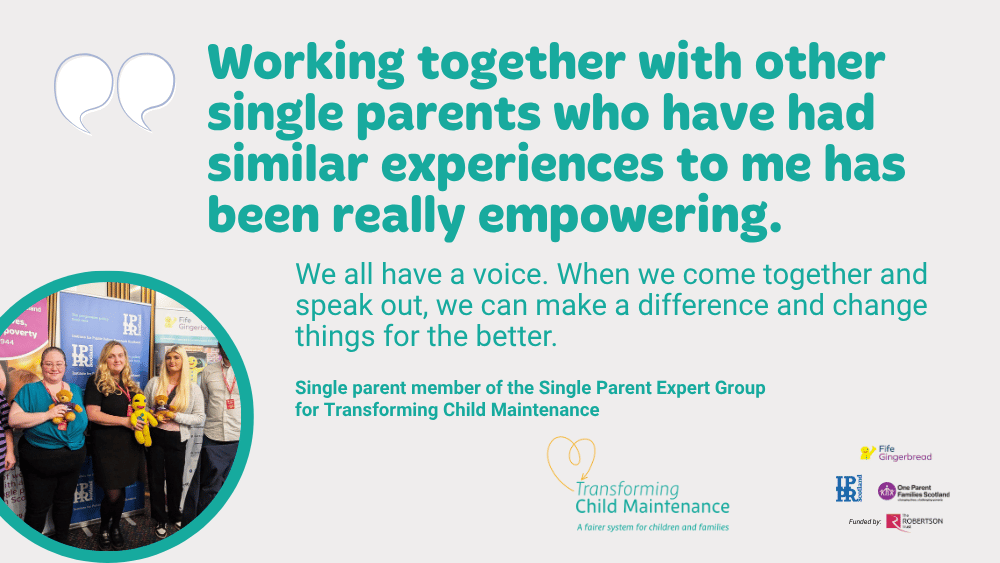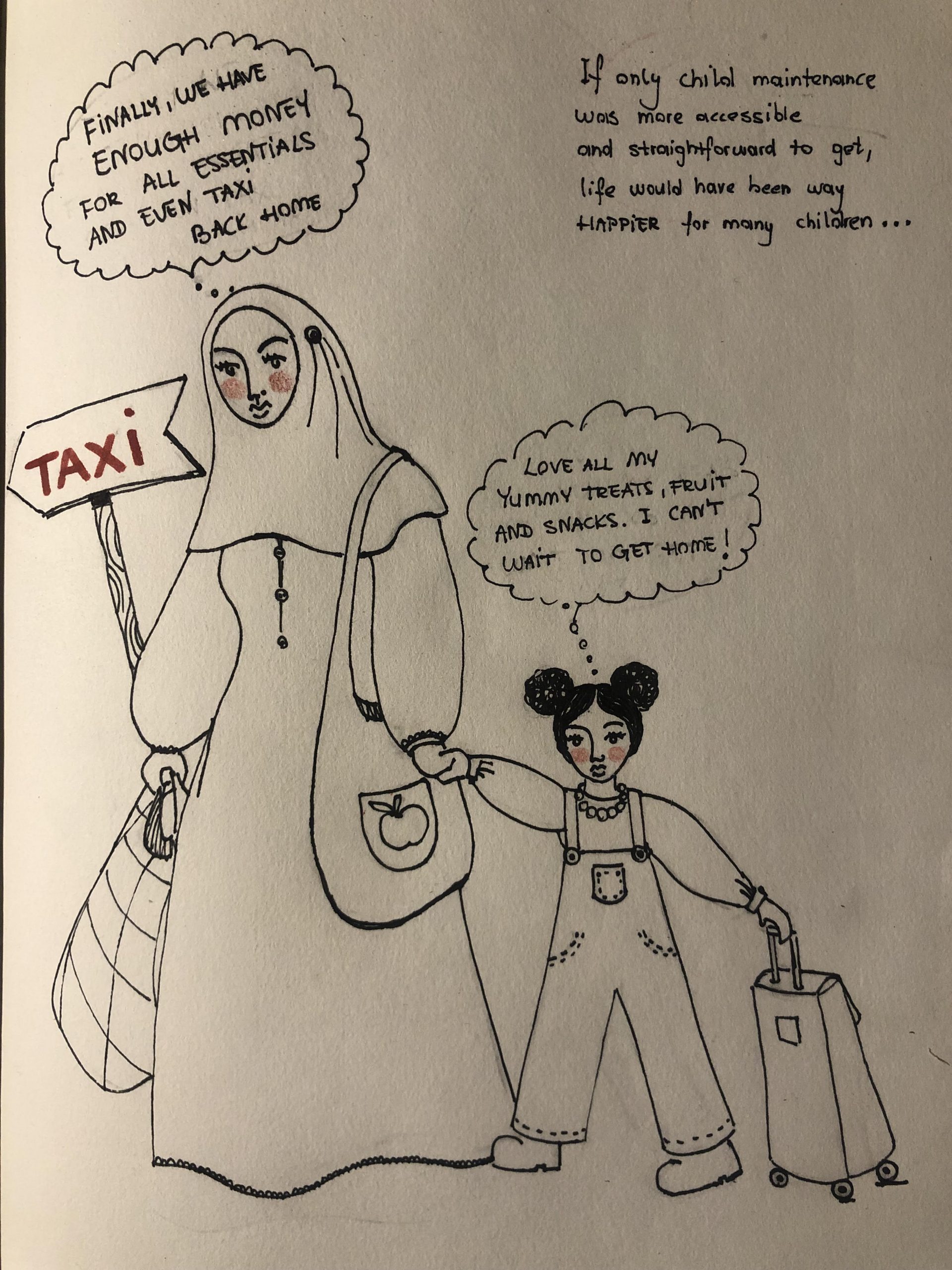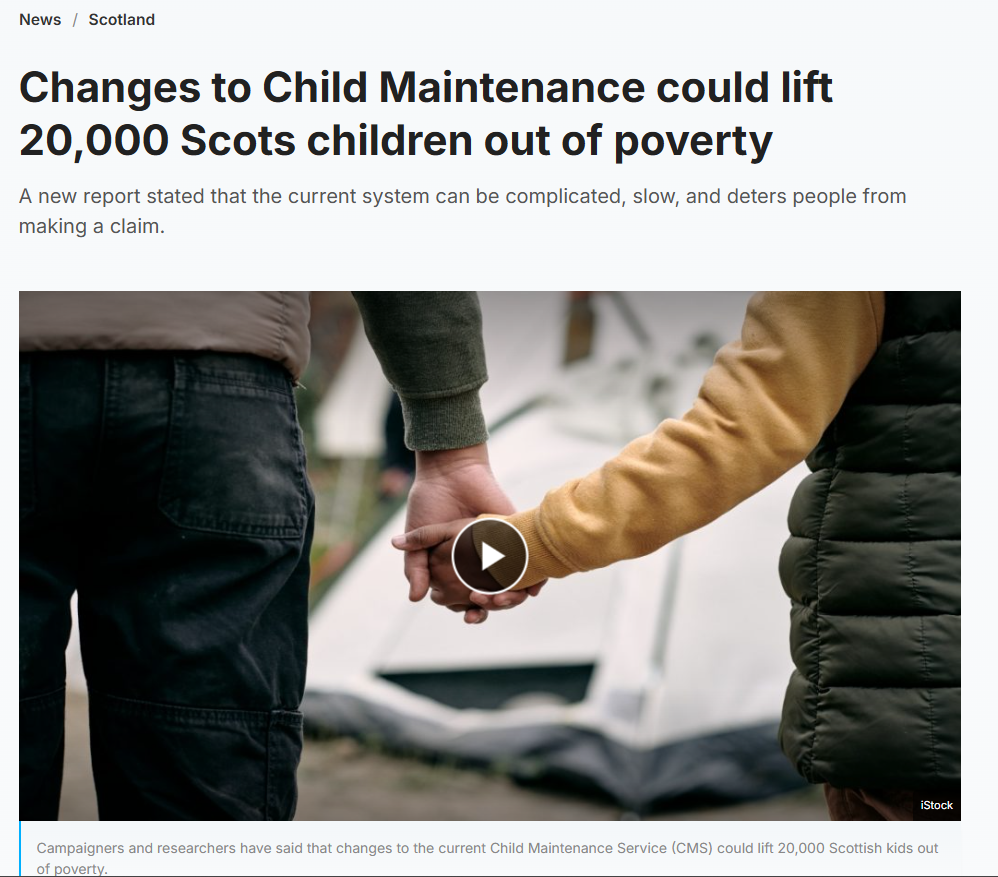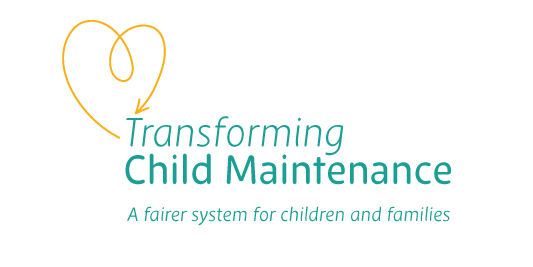Harnessing lived experience: how parent participation is fostering community to affect change

29/10/2025
Single parents are a community of interest. Community is not only about place. We often share common experiences, challenges, and goals, such as balancing work and childcare, navigating single parenthood, and seeking support networks. This shared context gives a strong sense of community and mutual support.
At OPFS, we recognise single parents as ‘experts by experience,’ which is why parental participation is integral to shaping our services and policy and campaigning work. Our Transforming Child Maintenance partnership project with IPPR Scotland and Fife Gingerbread has brought together parents, practitioners and policymakers to identify key challenges within the UK’s Child Maintenance Service. Together, we are advocating for a fairer system that better serves children and families.
Whilst the Child Maintenance Service (CMS) has a central role to play in tackling child poverty, it is failing to live up to this potential. Over a million separated families in the UK have no maintenance arrangement in place at all. Research by IPPR Scotland shows that where child maintenance arrangements are in place, they make a ten-percentage point difference to improving child poverty rates, reducing them from 50 to 40%.
Single parent experts
The second phase of the project, focused on exploring solutions and recommendations for improving the UK child maintenance system, the insights and experiences of parents, as key stakeholders, were crucial in shaping meaningful policy solutions. This makes the project both unique and essential.
The first stage of the project involved focus groups with resident (receiving) parents and non-resident (paying) parents, facilitated separately by OPFS and IPPR Scotland. These sessions provided insights into the challenges faced by both groups, helping to identify problems within the system. OPFS’s focus groups engaged mothers as receiving parents, while IPPR Scotland worked with fathers who are paying parents.
Parental involvement has extended far beyond these initial consultations, however. We have actively engaged parents throughout the project’s duration, conducting focus groups with parents to gain deeper insights. This research marked the beginning of a much broader co-production exercise, with parents continuing their involvement through Single Parent Expert Groups to the shape policy recommendations in our report, aimed at improving the child maintenance system for all separated families across Scotland and the UK.
- Parent Group,
Reducing barriers to inclusion
We made it a priority to collaborate with a diverse group of parents from various regions across Scotland, representing different socioeconomic backgrounds, communities, and family sizes.
We began engaging with single-parent communities by reaching out to OPFS local services and parents accessing support from Fife Gingerbread and the Poverty Alliance via email and phone. We explained the project’s purpose and shared a summary video with key information, which family support workers could then pass on to parents. Recognising that some parents may have English as a second language, we offered multiple ways to access the information, ensuring inclusivity.
Building trust – both with OPFS and among participating parent – was crucial in creating a safe environment where parents felt comfortable and empowered to fully engage. One-on-one conversations with each parent were key to ensuring they understood the project, identifying any support needs, and taking a person-centred approach to discussing child maintenance.
Parents told us they were excited to take part in focus groups and enjoyed hearing other parents’ experience and were hopeful they could play an important part in helping to influence policy.
To accommodate everyone, we arranged in-person meetings with parents in Dundee, Fife and Glasgow, while also offering online meetings for those in other locations. We provided flexibility by offering both in-person sessions during school hours and evening online meetings to accommodate parents’ schedules around childcare. To ensure no parent faced financial barriers to participation, we covered travel expenses, ensuring no one was out of pocket.
- Kira, Single mum, Fife

Building community to affect change
Co-production and parent participation are powerful forms of community involvement that go beyond traditional volunteering. While they may not fit the conventional definition of volunteering, these approaches are essential in bringing parents with lived experiences together to transform their often challenging or negative experiences into positive contributions. By sharing their insights, parents help shape solutions that improve not only their own lives, but also the lives of others. During launch week of the Transforming Child Maintenance interim report, parents gave evidence and contributed to a roundtable discussion on child maintenance at the Scottish Parliament. At the end of this event, one parent approached Paul O’Kane MSP, Chair, to share her ambition of using her lived experience and her studies in social policy to one day to step into his role and further her journey as an agent of change.

What’s next?
We have already begun to meet with MPs, MSPs and the DWP to discuss ways in which the recommendations in the report can be implemented. Parents will speak at an upcoming roundtable event at the Scottish Parliament about their experiences of the CMS and being part of the Transforming Child Maintenance project before we head to Westminster early 2026! Watch this space, and follow our campaign for change!


